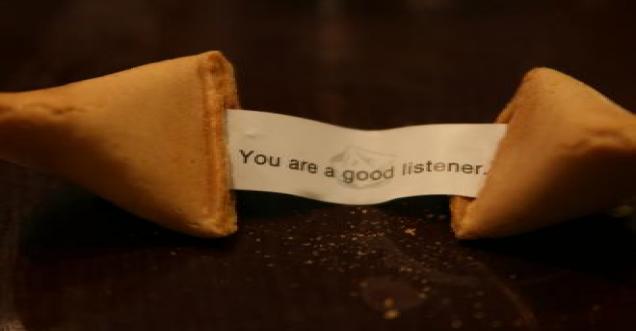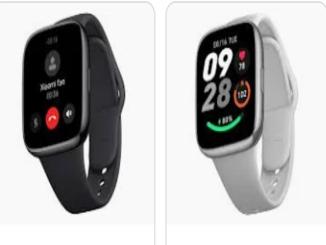
good listener= good speaker, communicator, having good friends, socially more active and lots
One of the great methods of good communication is the ability to be a good listener. A person who has mastered this skill tends to be a good communicator. The simple fundamental is if you don’t listen carefully , you cant answer exactly if you have not listened carefully.
If you are a good listener you can see the world through the eyes of the other person. It help you better empathies with the other person in a better way. Many people has this inbuilt quality to be a listener , but many people don’t have this ability. They will interrupt before the second person has finished his words and end up saying which is not relevant to the person talking to him. Interruption also means the person saying something will end up saying something else.
Some of the ways that can help us to be a good listener can be
Absorb and stay silent to the maximum
- Willing to listen: it is easier to easily get lost in your personal opinion and belief and don’t understand what the other person wants to tell. Everyone has two ears and one mouth for a reason. This means that you should be listening more than you are talking. It is more beneficial to listen than it is to talk. When listening to people, you can engage in the conversation and make eye contact so that the other person knows that you care about what he/she is saying (even if you don't care, it is still polite). People who listen more are more observant and therefore more thoughtful and have a better understanding of things. Make sure you really are listening and not doing something else. Try to make sure you are completely focused on the person who is talking and not get sidetracked. Make sure you are making eye contact with the person, not someone else or something else.
- Don’t judge the person in initial conversation: Instead of judging the person who is speaking, or coming up with a "solution" right away, just take the sometime to listen and to look at the situation from the other person's perspective. Think about how you would feel if someone was silently judging you. This will help you truly hear the person instead of forming your own opinions before you truly understand the situation at hand.
- Never compare: many people have tendency to start comparing with the persons problems or experience with their own. However it can be offensive to the other person. Avoid saying more of yourself as this may indicate that you are more focused on telling about yourself then of listening to others.
- Don't try to help immediately: Some people think that, when they're listening, they should also have their gears turning to find a quick and easy solution to the person's problem. Instead of this attitude, you should take what the person says at face value, and take the time to think of a "solution" when the person is speaking — and only if he or she is really looking for help in this way. If you start frantically thinking of all of the quick fixes for the person's problems, then you won't really be listening.
Focus on absorbing everything the person is saying to you. Only after that can you really try to help.
Limit distractions. We live in a society that is filled with so many distractions. We are constantly listening to so much noise that it’s a challenge to truly listen to another person. In order for you to be a good listener, you need to limit distractions during your conversation, whether it be the television, telephones or interruptions. It takes a mental decision to limit distractions when you are listening to someone else.
- Show them that you care by nodding at appropriate times so that people know you are listening. Also says little things such as "Yeah, yes, no, how, when" when the person is talking about something that they want you to agree on (you can tell by their tone of voice) or "Wow" when the person talks about a tragedy or something bad done against them. Saying these words shows them that you are not only listening but also paying attention. Say these words at the appropriate times and softly so that you don't come off as overbearing and interrupting. Try to appeal to your sensitive side and comfort the person if in distress. But on the other hand most people do not want to be pitied. So comfort them but don't make yourself seem higher than them.
- Follow up: Another important part of being a good listener is that you go beyond just hearing the person out having a conversation, and never thinking about it again. If you really want to show that you care, then you should ask the person about the situation the next time you're alone together, or even shoot him or her a text or give a phone call to see how the situation is progressing. If it's something serious like an impending divorce, a job search, or even a health complication, then it can be very nice to show that you care by checking in, even when you're not being asked to. Don't be put off however if they don't want to follow up, accept their decision but tell them you're always there to support them.
The person who talked to you might be touched that you made the effort to actually think about him or her beyond your conversation and to even check in to see how he or she is faring. This takes your listening skills to the next level.
Of course, there's a difference between following up and nagging the person. If the person talked to you about how she wants to quit her job, you probably don't want to send a text every day asking if she did it yet, or you'll be putting unneeded pressure on the situation and creating stress instead of helping.
- Know what not to say: Knowing what to avoid when you're trying to be a good listener can be almost as helpful as knowing what to do. If you want the speaker to take you seriously and to think that you are being respectful, then here are some general things to avoid:
Don't interrupt in the middle of a point.
Don't interrogate the person. Instead, gently ask questions when it's needed (i.e.between gaps or lulls when the person is not talking).
Don't try to change the subject, even if it's a little uncomfortable.
Avoid saying, "It's not the end of the world" or "You'll feel better in the morning." This just minimizes the person's problems and makes him or her feel bad. Make eye contact with the person so that they realise that you are interested and are listening.
Speaking the right things at the right time
- Meaningful questions: ask meaningful questions when someone is sharing his/her personal problems. Make them feel that you are the right person whom they are talking.
- Advice: when giving advice make sure you are giving some natural advice rather like being influenced from some movie or other medium.
- Body language: this is another important medium in the communicating, non verbally. Some non verbal listnining communications are
- Eye contact: Eye contact is important when you are listening. If you give the other person impression you aren't interested and are distracted, they may never open up to you again. When it comes to being a good listener, it’s important for you to have eye contact with the other person. When someone is talking to you, focus directly on their eyes so that they will know with certainty that you are absorbing every single word. Even if the topic is not interesting to you, at least respect and truly listen to what the speaker has to say. Don't stare off in space.
- Focus your eyes, ears and your thoughts only on him/her and become a good listener. Don't concentrate on thinking about what you will say next, but instead, focus fully on what the other person is saying. (Remember that it's about the person, not you.)
- Nodding head, body tilting towards the speaker, uncrossed legs, and tows pointing towards the speaker all can be helpful.
- Make proper facial gesture, like in case, if something sad, don’t make a happy face and keep your face composed and focused towards the listener.



























